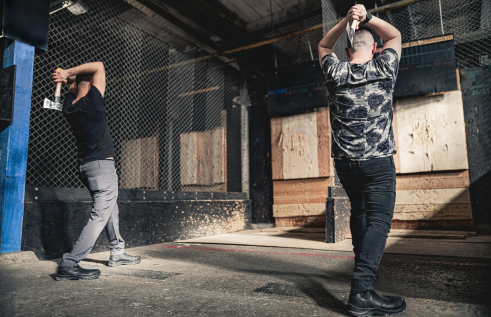Tai chi brings relief and better outcomes to breast cancer survivors
The Chinese movement and meditation technique, Tai chi, has been found to assist in the relief of a cluster of symptoms experienced by breast cancer survivors.
Charles Darwin University doctoral researcher Liqun Yao said the fatigue, sleep disturbance and depression symptom cluster (FSDSC) was commonly experienced by breast cancer survivors.
“Patients also experience adverse effects of drugs used to treat FSDSC symptoms, so it is necessary to explore the role of non-pharmacological interventions that can form part of the treatment,” Ms Yao said.
“FSDSC can negatively impact patients’ physical functioning and quality of life, leading to more severe cancer-related symptoms, financial hardship through loss of income and even shorter survival times.”
Tai chi involves a series of physical movements, breathing techniques and meditation and is based on the theoretical principles of Traditional Chinese Medicine.
“Tai chi movements promote “qi” (energy) to circulate freely throughout the body via meridians and channels, the energy pathways connecting the body’s vital organs,” Ms Yao said.
“It can play a key role in regulating stress response in the body.”
Ms Yao said that many complementary therapies require extensive professional skills and specific equipment, but Tai chi is relatively risk free, low cost and comparatively easy to learn.
“It’s also important that in patients with existing fatigue symptoms, we use physical activity that requires less energy to practise,” she said.
Ms Yao is nearing completion of a randomised controlled trial of the treatment in two large hospitals in China: The Affiliated Hospital of Putian University, Putian, Fujian Province and The Affiliated Hospital of Southwest Medical University, Luzhou, Sichuan Province.
“We recruited 72 patients in total, 36 patients in the control group and 36 patients in the tai chi group,” Ms Yao said.
“The participants in the tai chi group were excited to practise tai chi, and they often helped us to introduce tai chi to other cancer survivors who were experiencing FSDSC.”
From her evidence-based research, Ms Yao has now been able to develop a tai chi protocol that can be used by healthcare professionals.
The research has recently been published in the international journal Complementary Therapies in Medicine.
Related Articles

CDU student paramedics tested in a simulated explosion
Read more about CDU student paramedics tested in a simulated explosionCharles Darwin University (CDU) paramedic students were put through their paces in a real-life scenario that included the sights and sounds they would expect while responding to emergencies.

Award-winning paramedic shines at CDU Open Day
Read more about Award-winning paramedic shines at CDU Open DayWorking at the busy intersection of education, primary healthcare, emergency medical services and public health, Amy McCaffrey is an inspirational figure.

What happens to your body when you throw an axe?
Read more about What happens to your body when you throw an axe?With axe throwing growing and elite competition booming, a Charles Darwin University (CDU) sports scientist is looking at how the three most common throwing techniques impact the body.
